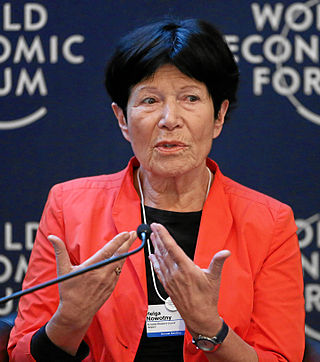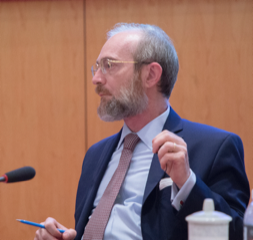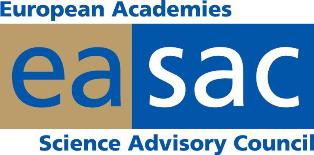
The British Academy for the Promotion of Historical, Philosophical and Philological Studies is the United Kingdom's national academy for the humanities and the social sciences. It was established in 1902 and received its royal charter in the same year. It is now a fellowship of more than 1,000 leading scholars spanning all disciplines across the humanities and social sciences and a funding body for research projects across the United Kingdom. The academy is a self-governing and independent registered charity, based at 10–11 Carlton House Terrace in London.

A learned society is an organization that exists to promote an academic discipline, profession, or a group of related disciplines such as the arts and science. Membership may be open to all, may require possession of some qualification, or may be an honour conferred by election.
A national academy is an organizational body, usually operating with state financial support and approval, that co-ordinates scholarly research activities and standards for academic disciplines, and serve as public policy advisors, research institutes, think tanks, and public administration consultants for governments or on issues of public importance, most frequently in the sciences but also in the humanities. Typically the country's learned societies in individual disciplines will liaise with or be coordinated by the national academy. National academies play an important organisational role in academic exchanges and collaborations between countries.

The Royal Netherlands Academy of Arts and Sciences is an organization dedicated to the advancement of science and literature in the Netherlands. The academy is housed in the Trippenhuis in Amsterdam.

The Royal Society of Canada, also known as the Academies of Arts, Humanities, and Sciences of Canada, is the senior national, bilingual council of distinguished Canadian scholars, humanists, scientists, and artists. The primary objective of the RSC is to promote learning and research in the arts, the humanities, and the sciences. The RSC is Canada's national academy and exists to promote Canadian research and scholarly accomplishment in both official languages; to recognize academic and artistic excellence; and to advise governments, non-governmental organizations, and Canadians on matters of public interest.
The Royal Academies for Science and the Arts of Belgium (RASAB) is a non-governmental association which promotes and organises science and the arts in Belgium by coordinating the national and international activities of its constituent academies such as the National Scientific Committees and the representation of Belgium in international scientific organisations.

The European Science Foundation (ESF) is an association of 11 member organizations devoted to scientific research in 8 European countries. ESF is an independent, non-governmental, non-profit organisation that promotes the highest quality science in Europe. It was established in 1974 and its offices are located in Strasbourg, France (headquarters).

An academy of sciences is a type of learned society or academy dedicated to sciences that may or may not be state funded. Some state funded academies are tuned into national or royal as a form of honor.

The Academia Europaea is a pan-European Academy of Humanities, Letters, Law, and Sciences. The Academia was founded in 1988 as a functioning Europe-wide Academy that encompasses all fields of scholarly inquiry. It acts as co-ordinator of European interests in national research agencies.

Helga Nowotny is Professor emeritus of Social Studies of Science, ETH Zurich. She has held numerous leadership roles on Academic boards and public policy councils, and she has authored many publications in the social studies of science and technology.

The Accademia Galileiana, or "Galilean academy", is a learned society in the city of Padua in Italy. The full name of the society is Accademia galileiana di scienze, lettere ed arti in Padova, "Galilean academy of science, letters and the arts in Padova". It was founded as the Accademia dei Ricovrati in Padua in 1599, on the initiative of a Venetian nobleman, Federico Cornaro. The original members were professors in the University of Padua such as professor Georgios Kalafatis; one of its original members was Galileo Galilei. In 1779 the academy merged with the Accademia di Arte Agraria and became the Accademia di Scienze Lettere e Arti; in 1949 it became the Accademia Patavina di Scienze, Lettere ed Arti; its name was changed to Accademia Galileiana di Scienze, Lettere ed Arti in Padova in 1997, in honor of Galileo. The academy is lodged in the Carraresi Palace in Padua.

Dame Lesley Anne Glover is a Scottish biologist and academic. She was Professor of molecular biology and cell biology at the University of Aberdeen before being named Vice Principal for External Affairs and Dean for Europe. She served as Chief Scientific Adviser to the President of the European Commission from 2012 to 2014. In 2018 she joined the Principal's senior advisory team at the University of Strathclyde.

The Academy of Sciences of the Institute of Bologna is an academic society in Bologna, Italy, that was founded in 1690 and prospered in the Age of Enlightenment. Today it is closely associated with the University of Bologna.
Accademia often refers to:

Sierd A.P.L. Cloetingh is Professor of Earth Sciences at Utrecht University, and since 2014 President of the Academia Europaea.

Riccardo Pozzo is an Italian philosopher and historian of philosophy.

The Scientific Advice Mechanism is a service created by the European Commission which provides independent science advice directly to European Commissioners to inform their decision-making. The Mechanism consists of two parts: the Group of Chief Scientific Advisors, an expert group consisting of up to seven leading scientists, and SAPEA, a consortium of five European Academy Networks collectively representing around 100 academies and learned societies across Europe.
The Cyprus Academy of Sciences, Letters and Arts was founded in 2017 and launched by the President of Cyprus Nicos Anastasiades in 2018. Its aim is to enhance the scientific and cultural achievements of Cyprus by promoting and rewarding excellence in Science, Letters, and Arts, and cultivating interactions between the Sciences, Letters, Humanities, and the Arts in the Republic of Cyprus. It is an independent and autonomous institution consisting of 3 Sections: • Natural Sciences, • Letters, and Arts (Humanities), • and Ethical Sciences, Economic and Political Sciences.

The Accademia Nazionale Virgiliana di Scienze Lettere ed Arti is an Italian scientific institution.

The European Academies' Science Advisory Council (EASAC) is a regional association of National Academies of science. Its members are 25 National Science Academies of the Member States of the European Union (EU), and the National Science Academies of Norway, Switzerland and the UK. Malta and Luxembourg do not have National Academies of Science. A pan-European Academy (Academia Europaea) and a network of all Academies from across the continent of Europe also have membership (ALLEA). EASAC was founded in June 2001 and was headquartered at the German National Academy of Sciences Leopoldina in Halle (Saale) until 31 December 2022.
















